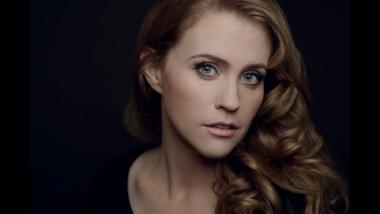
Self-expression flows out of soprano Rachel Willis-Sørensen like water from an open spigot, and it seems to have been that way for some time. Her column in the high school newspaper, titled “Rachel’s Rant,” prompted a teacher to ask facetiously when introducing a new subject in class, “let’s see if Rachel has an opinion about it.”
“And I always did!” says the soprano with a lyrical laugh, her voice still warm from rehearsal for the title role of Rusalka, which runs at San Francisco Opera June 16 through June 28.
Willis-Sørensen’s opinion of the show, which is based on a water-nymph of Slavic folklore, brought to operatic life by Czech composer Antonín Dvořák, is that it’s going to be pretty fabulous. “I have amazing colleagues who are intensely engaged. David McVicar is probably my most favorite director, and his production is mounted by Leah Hausman. We have a history and I trust her work, and her eyes. Conductor Eun Sun Kim is easy to follow, and so dedicated to good musical ideas. I feel like the product we’re creating is really world class.”
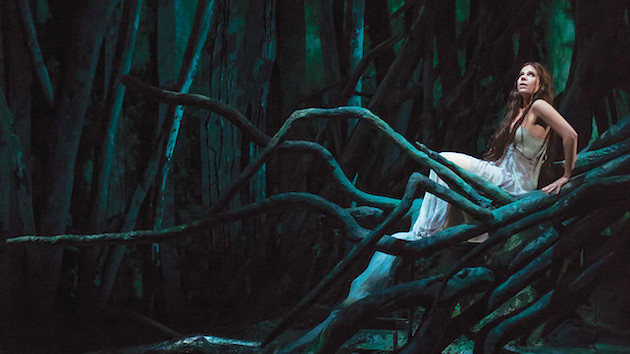
Playing the aquatic creature will be a new experience for the singer, who returns to San Francisco after a smashing company debut as Eva in Wagner’s Die Meistersinger von Nürnberg in 2015. “I did not anticipate what a pleasure it would be to play a nonhuman character,” she says. “There is so much artifice in playing a woman, with the expectation of grace and beauty all the time. I’m constantly struggling with the idea that you have to be slightly removed playing these noble women. But Rusalka is a creature. Her psychology is unique. It’s a complete blast. The way we’re conceptualizing it, she’s not a mermaid. She’s actually made of water. And even when she loses her watery mantle, she’s still amorphous. She’s heavy, as water is heavy, she’s totally unselfconscious and has no edges. The movement is based on ripples and all the ways water moves.”
“Totally unselfconscious and has no edges” is exactly how Willis-Sørensen comes across. The singer, who grew up in Washington State, speaks candidly on a range of topics. Relating to her character, she considers herself someone who doesn’t quite fit in anywhere. “There’s not been a position in my life, except when I’m performing, where I really felt like I belong,” says the singer, who was rejected by numerous choirs in college and struggled to find a place for her large voice until she found an artistic home in opera. An alumna of Brigham Young University and the Houston Opera Studio, Willis-Sørensen was an Operalia winner, bowed as Rosalinda opposite Jonas Kaufman’s Eisenstein in a Dresden New Year’s Eve Die Fledermaus, and was included last year by Opera News on a list of “18 to Watch.”
Despite such a warm welcome from the operatic community, she says, “I have had to come to terms with just being alien everywhere I go. I’m a weird size and shape for the world. I had twins. It’s not even enough to have a baby. I have to try to push this double stroller that doesn’t fit down the sidewalk. It used to be a source of sadness and loneliness for me, wondering where or when I would find my people, but I’ve come to terms with it. No one understands a hundred percent of your experience except you. That’s an important thing to learn. You have to find that within yourself.”
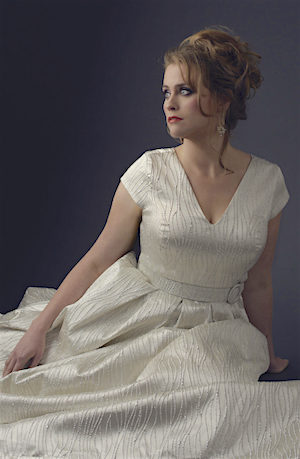
Such personal revelation is not a journalistic scoop. In one recent Facebook post, the singer shared similarly personal sentiment directly to the camera, the sun beaming down on her, the grand opera house behind. Her social media presence is expansive, comprising much more than diva shots and performance promos. She can be seen reviewing restaurants, playing ukulele while singing a Danish carol, or at the piano, moodily accompanying herself on a bluesy tune. She has also created an online network under the hashtag #realoperalife, where singers confer about resources, travel, and life as a singer. “I think it’s super important for every singer — for their mental health but also for giving the highest quality performance they can produce — to understand that what they have to offer is singular in the world, that they are actually irreplaceable.”
“I can check in with other singing parents,” says Willis-Sørensen, who recently relocated with her husband and three young children to Lindon, Utah, “but it’s the same as vocal technique: you get all kinds of advice but ultimately you’re the only one in your body. I’m the only one who is mother to my children, so we have to figure it out and make our own way.” Usually that means adhering to a two-week rule. “If the gig is longer than two weeks, they all come with me.”
Willis-Sørensen sings a wide repertory, with Donna Anna and the Countess joining Leonore in Il trovatore, and the Marschallin in Der Rosenkavalier. There is even a Violetta in La traviata upcoming in 2020. While Elsa in Lohengrin bodes of big things to come, Willis-Sørensen has resisted going full throttle in exclusively Germanic repertoire. In one instance, this hesitancy required a substantial pivot. “My former manager believed that the best course of action for us was to stay predominantly Strauss and Wagner, so I was kind of barreling toward these big roles, and I was feeling trepidatious about it. I was getting more offers like that, and not getting the lyrical offers. It was too big, too soon.”
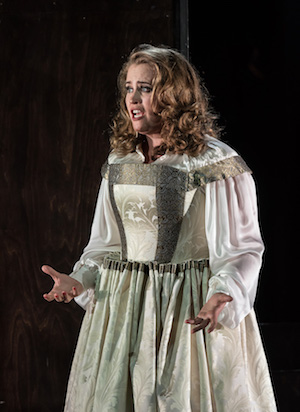
Already scheduled to sing Senta in Wagner’s Flying Dutchman, Willis-Sørensen changed course, and management. It was a difficult choice, she says, because of her real affection for the agent in question, but necessary. “We weren’t seeing eye-to-eye on how the career should develop,” she says. “I really wanted to see how it feels to sing Verdi. I wanted to put that in my throat and experience it, but I was told ‘you’re a Germanic voice, you pick the direction and stick with that.’ That’s the easiest way to promote a singer, but I think there’s an Italianate part of me. I was hoping to follow more the path of Renée Fleming or Jonas Kaufman who have sung everything, within reason and in the right tessitura. They weren’t held back by the notion of ‘this is what I do.’”
“I don’t know if he’d say this about himself,” she says of Kaufman, “but in my limited experience with him, he’s so true to himself. He’s going to go for it. He doesn’t care if his opinion differs from someone else’s, he’s going to be true to himself. That’s not something you’re told as a young artist. In fact, you’re encouraged toward the opposite, to be agreeable, do as your told, sit in the corner and wait until you’re spoken to. But he is engaged in the process and as a result the product is paradigm shifting. People are always trying to shave off the corners, maybe make a smoother product, and that’s fine. But at the center, you can’t lose the thing that drew you to it in the first place.”
Her new agent, Alan Green, definitely heard Verdi in her voice. “Within two weeks of switching agents I had my first Verdi offer,” she says. “I only had a week to prepare for Les vêpres siciliennes in Munich because somebody pulled out. He [Green] was so excited, he promoted me, convincing the intendant to cast me, even though I had never sung anything like that.” The leap of faith was rewarded, and now Verdi is on the main menu. “But I have to be careful, too,” she says. “Somebody offered me Aida, but it’s not time.”
After spending a year in Hamburg as a Mormon missionary at the age of 21, German is a second language for Willis-Sørensen, who also speaks her husband’s native language, Danish. Her fluency in German added to the momentum toward that repertoire, which she still sees in her future. “I want to sing the three Es: Eva, Elsa, Elisabeth. I have them coming up and I’m happy to sing those, but I’m not ready for those S’s: Senta and Sieglinde. I’m 35 on Friday. I think the next 10 years I can really go far singing Verdi and these Es from Wagner, but part of the problem with me is that I want to sing everything. I don’t want to be limited. I want to sing in every possible language and every possible style. I’m so rewarded by that process and preparation. That was a huge draw to the profession in the first place, so it’s hard to say where I’ll be tomorrow.”
In the meantime, Mozart is still a calling card. Her Countess will be heard in Chicago next season, and this season she sang Donna Anna at the Met, while her rendition of Donna Anna’s aria “Or sai chi l’onore” at Covent Garden has thousands of views on YouTube. But Willis-Sørensen rejects the idea of thinking of Mozart as any kind of vocal safety zone. “It’s not rewarding to sing, for lack of a better word, in a precious way. I guess it’s a taste issue. I sing Donna Anna. I don’t half sing. Whatever rep I sing, I sing with my whole body and devote myself to telling the story in the most legible way.”
Many of her current roles, Donna Anna included, are damsels in various states of distress, but Willis-Søorensen also rejects clichéd interpretations, or tries to. “It’s always a battle. As an actress I want to eat the set. I don’t want to prostrate myself elegantly. But they don’t want to see that. It always has to be a little bit curated.”
Asked if old-fashioned sexism might be at play, with male directors sometimes expecting a woman to behave in more stereotypical ways, she pauses, seeming to consider the question deeply. “There’s so much inherent misogyny in such an old art form. Maybe that’s all it is. And we put up with way more than we should because there are so many more women trying to make it in this profession than men. As a soprano there are 20 women waiting to replace me, hoping to kneecap me in the parking lot. [Laughs.] I don’t know if that’s true. It doesn’t help to focus on that, but I personally have put up with too much misogyny because of that fear of being too easily replaced. I don’t believe in that anymore.”
Part of this detachment comes from the new reassurances of family. “If it goes badly I still have my little troop that loves me no matter what.” But also, her time as a missionary reordered things. The mission was just after college, which was itself stressful for Willis-Sørensen, who for a time rose pre-dawn to work in a bakery, worked as a cleaner, and at Subway, before her voice started to allow her to win some scholarships. The result was that she left school without debt. And the luxuries that sometimes accompany her life now are much appreciated, whether it’s the new home in Utah, which has a waterfall in the backyard, or the more basic pleasure of being able to buy what she wants for dinner at the grocery store.
“I was hyperfocused on singing,” she says of those starving student days. “I really lived or died based on how I sang. But when I was away, I saw people struggle. It was really gritty. I talked to people with deep, deep wounds, and I had to communicate with them in their language, and it changed my whole life and perspective. I realized that there are more important things than achievement. Inner peace is probably the most important thing. So when I came back, I approached my singing differently; it was less direct. It’s ironic. I think that about voice technique, too. You can’t go right at it through the front of your face. You have to let the resonance go up the back of your head and come indirectly into the mask. There’s an emotional component to that. You have to be careful that you’re not desperate. That desperate quality will affect your singing.”
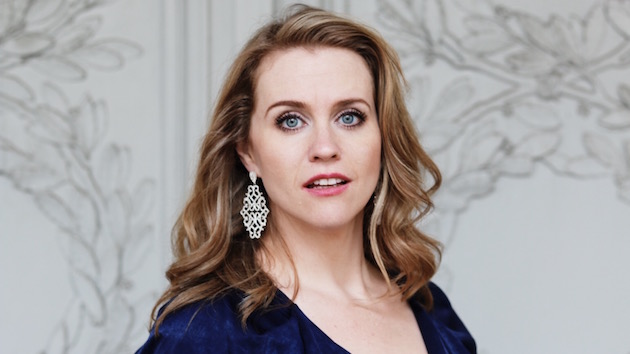
While Willis-Sørensen says she is definitely “the CEO of my own team,” she also acknowledges, “I’m getting kind of a big entourage of late!” Voice teacher Darrell Babidge once flew to Vienna to help her vocalize when she was having difficulty in the year after her twins were born. She also gets help from an acting coach, Iliana Flade, who she flies in from London when needed. “I don’t think that will happen this time because the production is so comprehensive, but if something is really conceptual I may be less prepared, because the director wants to explain the whole concept and then you have to really work to reconceptualize it. But [Flade] helps me dramatically. She’ll say ‘you were sitting this way in this scene and it doesn’t look good,’ or ‘this needs to be stronger,’ or ‘that should be softened.’”
Sorenson’s energy seems like a river she must continually strive to find outlets for. Asked if there is an off switch on the Rachel machine, she laughs. “I am not happy if it’s off. If I’m not having the opportunity to express what’s inside, I’m not happy,” she says, agreeing with a singer she knows who says she gets depressed if she goes a day without singing. “There’s pressure inside, and singing relieves the pressure. When I’m not emoting, it gets backed up. I feel all this tension. It’s not normal, but I do have a great capacity for feeling a lot of things. For me, the most efficient way to get rid of it is performance. It takes me to zero. It’s sweeping. It gets all that energy out, and in the end, I’m in this blissful state of depressurization.”

